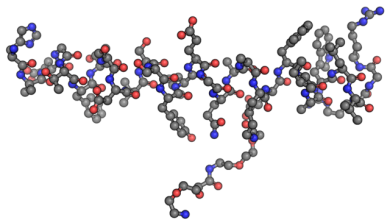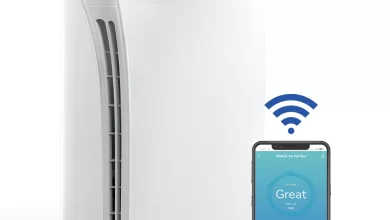What Is Bruxism and How to Prevent It?

You may have bruxism if you wake up with headaches or jaw pain. This is when you grind or clench your teeth habitually. That can be a serious problem, with serious consequences for your oral health and quality of life.
If you are in or around Alberta, it is best to visit the dental clinic in Calgary; the dental team will work with you to get your bruxism under control so you can enjoy restful sleep once more!
Overview of Bruxism
Bruxism is characterized by chronic teeth grinding or clenching, which often occurs during sleep. You could be completely unaware of your situation, but a family member or significant other may notice your constant grinding.
The pressure exerted on your teeth by clenching and grinding is up to ten times that of normal chewing, wreaking havoc on your oral health.
There are numerous causes of bruxism, including the following:
- Anxiety, stress, or frustration
- Asleep disorder or snoring
- Tobacco smoking or the use of tobacco products
- consuming caffeinated or alcoholic drinks
- Taking medications, such as antidepressants
- Various medical conditions, such as Huntington’s disease and Parkinson’s disease
What exactly is bruxism?
Bruxism is the medical term for teeth grinding or clenching. This condition affects between 30 and 40 million people in Canada. People with bruxism commonly grind and clench their teeth while sleeping. As a result, it cannot be easy to detect this habit unless you have a partner who hears your teeth grinding at night. Teeth clenching can also happen during the day, especially during stressful times.
There is no single cause of bruxism. Aside from stress, it could be caused by certain medications, a misalignment of the jaw and teeth, or a disease symptom such as Parkinson’s. Teeth grinding at night may also be linked to other sleep issues and disorders like sleep apnea.
The Consequences of Teeth Grinding
Grinding your teeth gradually wears away the surface enamel, making your teeth weaker and more sensitive. This can cause tooth pain when you go outside on a cold day and eat or drink anything hot or cold. Cavities and tooth decay are also more likely due to the increased exposure.
Your teeth may become damaged over time, causing additional pain and costly repairs. Because of the force applied to your teeth while grinding, you may notice chips, cracks, or fractures.
Signs and Symptoms of Bruxism
According to the Bruxism Association the common symptoms of Bruxism are
- morning headaches
- temporomandibular joint (TMJ) discomfort,
- and muscle pain
The above three symptoms are because of teeth grinding.
Patients also report the following issues associated with Bruxism:
- sleep disruptions
- sore gums
- facial pain
- ear pain
- jaw, neck, and shoulder stiffness.
What Effect Does Bruxism Have on Your Oral Health?
Chronic teeth grinding can weaken your teeth, making them prone to various problems such as tooth wear, which can lead to increased sensitivity due to a loss of tooth enamel. Furthermore, the forces of grinding and clenching can cause chipped, fractured, or loose teeth, leading to tooth loss.
It can worsen the prognosis of dental treatments. When a person has bruxism and gets dental restoration, the prognosis of such restoration becomes poor. Teeth grinding can harm your dental restorations and make them break. Also, excessive teeth grinding can damage implants, bridges or crowns.
How Can You Get Rid of Teeth Grinding?
Stress is the leading cause of bruxism. Consider listening to music, yoga, deep breathing, massages, going for a walk, or taking a warm bath before going to bed. You should consult a professional if you are still experiencing stress and anxiety.
Many patients find that avoiding alcohol and stimulants like caffeine before going to bed helps them sleep better. Furthermore, switching medications to different ones may help your condition, so discussing current prescriptions with your healthcare provider may benefit you.
Treatment Options for Bruxism
When you visit a dental clinic twice a year, your dentist will look for signs of bruxism. A custom-fit mouth guard known as a nocturnal bite plate or night guard may be recommended. Your oral appliance will be worn over your teeth to prevent grinding damage and reduce jaw muscle pain.
If a sleep disorder causes your bruxism, we may recommend a mandibular advancement device, a custom-made oral appliance that helps position your bottom jaw forward while you sleep. It will also reduce snoring and manage sleep apnea, allowing you to enjoy restful, rejuvenating sleep.
In severe cases, we may need to repair your teeth’s chewing surfaces with extensive tooth wear or damage to your restorations to restore their health and function and prevent further deterioration. Using dental appliances to protect your teeth will not cure your bruxism. Still, it will help redistribute the grinding and clenching forces, protecting your teeth and alleviating any bruxism-related symptoms.
Conclusion
Dentists examine the teeth of people with bruxism at regular dental appointments. Dentists may often detect severe damage to teeth and the likelihood of bruxism before the patient has experienced any symptoms. Usually, you would be suggested Invisalign braces to straighten your teeth that may be causing bruxism.
For those who haven’t visited the dentist in a while, it’s time to arrange an appointment to discuss your worries about bruxism. Your symptoms and the findings of an oral examination will be considered to assess whether or not you grind your teeth. Also, you can read about Skin tone injections.






